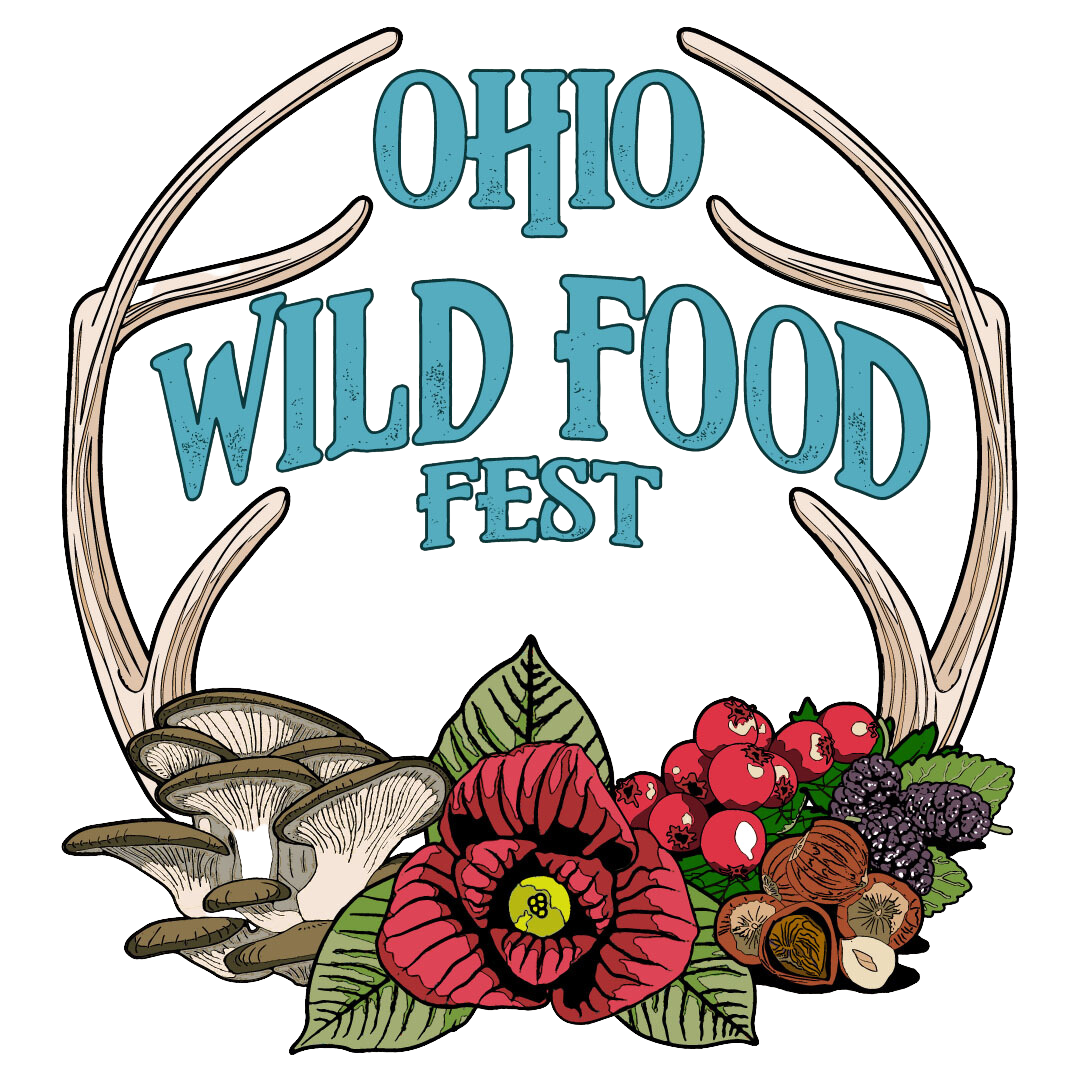9-9:30am: Registration & Meet and Greet
9:30-10:00: Get to Know Bending Oak
10:00-11:30: Session 1
- Spilling the Tea…Talking Herbs with Emily Nobodi
- Intro to Small Game Hunting with Phil Melillo
Noon-1 lunch (bring a bagged lunch!)
1-2:30: Session 2
- Intro to Fishing with Michael King
- Tracking and Ohio Wild Game Behavior with Peter Hoffman
2:45 – 4:15: Session 3
- Forays: Reading the Landscape/Wild Plant Identification with John Wright and Wild Edible and Medicinal Mushroom Identification with Don King
- Intro to Foraging with Susan Majercek
4:30-5:30: Session 4
- Mushroom Cooking Demo with Adam Lee
- Wild Fermented Drinks Demo with John Wright
5:30-6:30: Dinner and Raffles
6:30-7:30: Session 5
- Mushroom Hunting 101 with Don King
- Creating and Using a Foraging Journal with Susan Majercek
7:30-Late: Bonfire and Music!
8-9: UV Biofluorescence Hike
Workshops, Presentations, Walks, & Demos
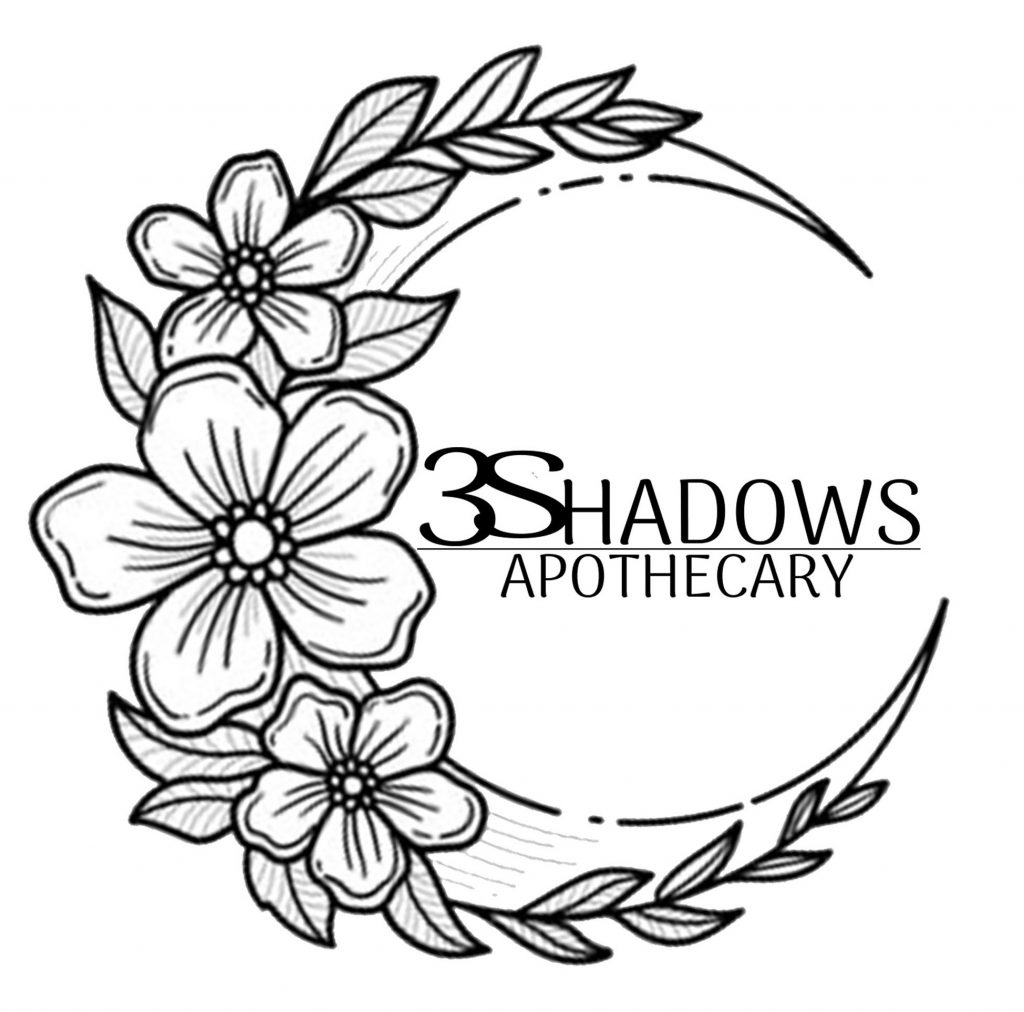
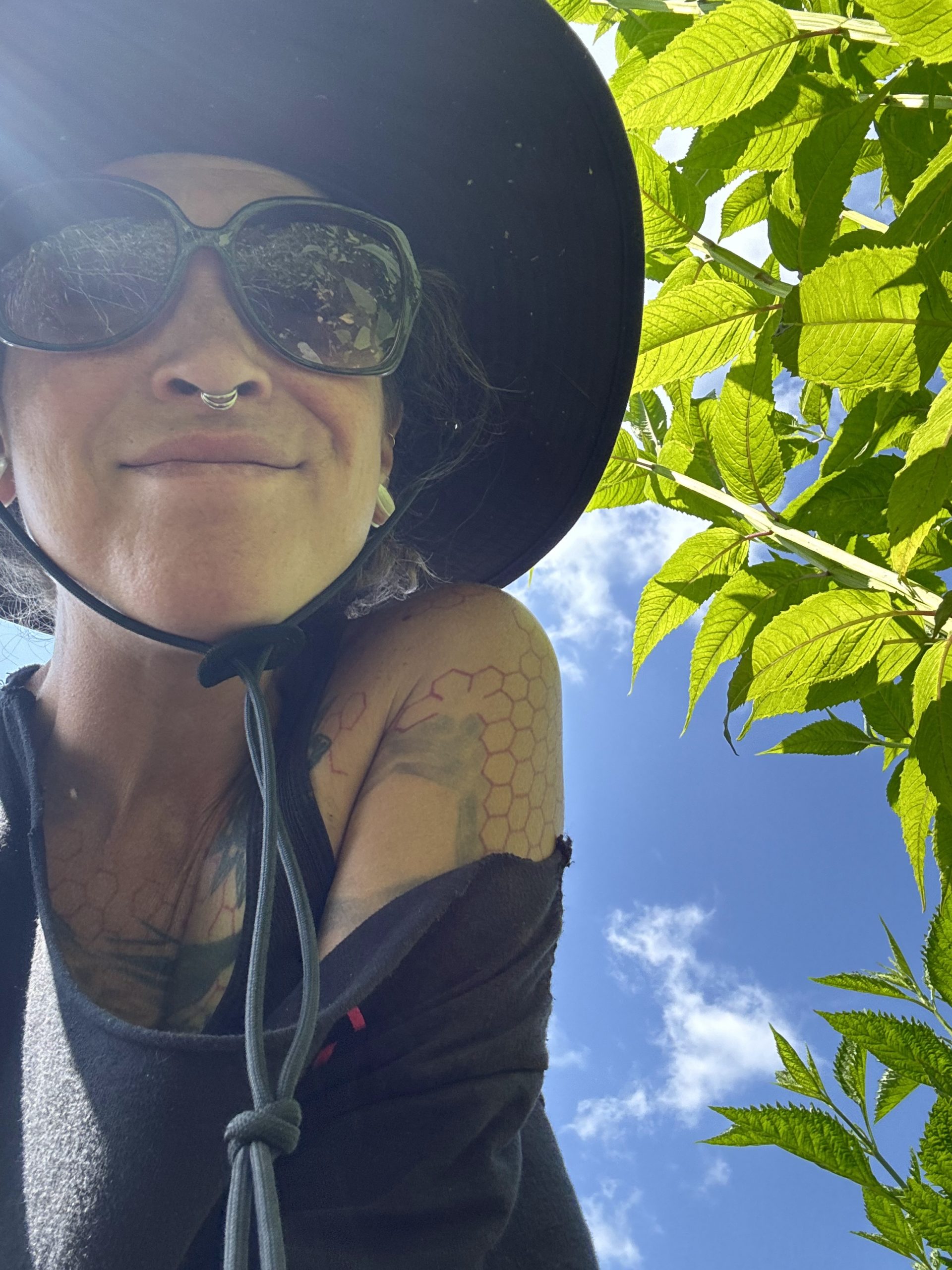
Spilling the tea… talking herbs. With people.
Walk with Emily Nobodi from 3Shadows Apothecary
Emily Nobodi, a plant lover. Trained in permaculture design and education, and as a vital herbal practitioner. Practicing the fine craft of growing, harvesting, and preparing herbal magic for over 20 years. Design and creating gardens in both the urban and wide rural spaces. Focus on soil and regenerative practices both on and off the farm. Ask the questions. Pass the knowledge. It’s worth it. Love you.

Creating and Using a Foraging Journal
Workshop with Susan Majercek
Whether you are new to foraging or wishing to expand your practice, a foraging journal can be invaluable to your adventures! Learn about different styles of journals, all the various information you may wish to record, and how to use the journal to enhance your foraging. Build habit that will bring you closer to the natural world. Bonus: Each participant will be able to create a pocket sized mini journal to keep with you for times when you do not want to carry a larger version.
In this workshop I will present journal page examples, how to create an index for your journal, ways of organizing a journal, various information and details you may wish to include, reference books and websites I use to find information, how to utilize iNaturalist, and a calendar guide to foraging in Northeast Ohio. We will also discuss how keeping a foraging journal can benefit the user by deepening your connection to the cycles of nature. Each person will also create a mini journal with several spice and plant dyed paper to take home.
A life long camper and nature lover, Susan graduated from Hiram College with a BA in Environmental Studies. From field research on invasive earthworms to kitchen experiments with tincture making and adventures in foraging, she is creating a life that allows her to explore and live within the cycles of nature!
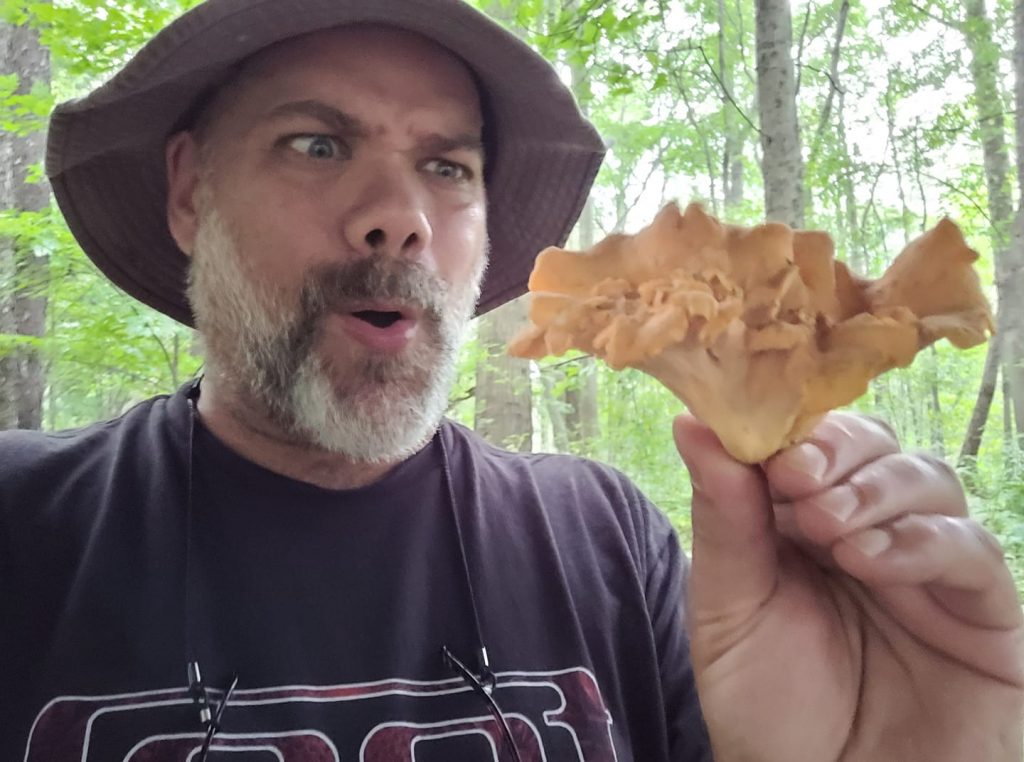
Edible and Medicinal Mushroom Identification
Walk with Don King, the Mushroom Hunter
Join Don on a hike through the woods, where he’ll teach you how to find, identify, process, and preserve the many edible and medicinal mushrooms that grow in spring here in NE Ohio. Take a walk through the woods, and search for edible and medicinal mushrooms. Don will talk about when and how to find various species, identify them correctly, and process or preserve the various mushrooms found. Learn about sustainability and the environmental concerns involved with mushroom foraging.
Don King, also known as The Mushroom Hunter, can often be found hiking the forests of Ohio and neighboring states in search of wild mushrooms and other delicious and healthy edibles, which he considers to be the pinnacle of sustainable, local foods. Don loves to share his knowledge of wild foods and how to prepare them through private and group identification workshops and wild edible hunts, as well as video tutorials and other appearances. He has been featured on NPR’s Good Eats with Vivian Goodman and has made over a dozen appearances on Fox 8’s New Day Cleveland.

Foraging 101
Presentation by Susan Majercak
This class will cover the basics of preparation, equipment, “rules”, keeping track of your findings, basic food preservation choices, my favorite recipes so far
A life long camper and nature lover, Susan graduated from Hiram College with a BA in Environmental Studies. From field research on invasive earthworms to kitchen experiments with tincture making and adventures in foraging, she is creating a life that allows her to explore and live within the cycles of nature!
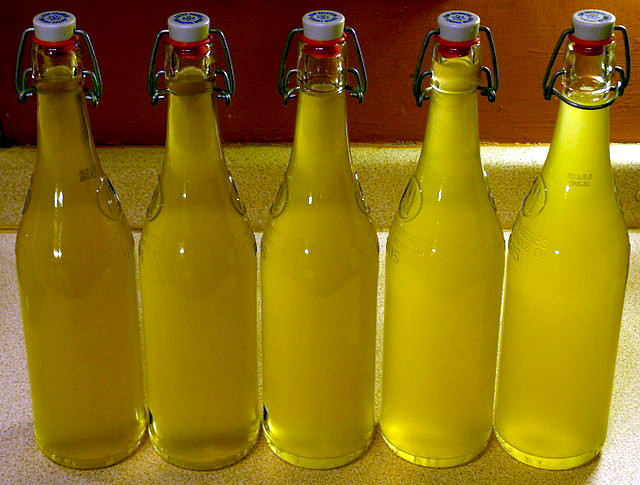
Wild Fermented Drinks
Workshop with John Wright of Red Beet Row
John will give a simple hands-on approach to making fermented bubbly drinks of varying alcohol content, otherwise known as mead or country wine. Come learn how to preserve the tastes of summer for enjoying all year!
There will be samples of seasonal offerings that John has brewed just for this event.
John is basically an organic farmer who teaches workshops and presentations around the region and at his farm, Red Beet Row. He and his partner grow new and interesting crops for the region, save seeds, and sell interesting hard-to-get nursery plants. Some of their long-term projects include: mushroom log cultivation, ecological forest management, prairie restoration, plant breeding, beekeeping, animal husbandry and natural building.
His interdisciplinary work means he teaches a variety of classes on homesteading, wild foods, plant identification, soil fertility, market gardening and permaculture design. His life’s work is devoted to community resiliency in the NE Ohio region.
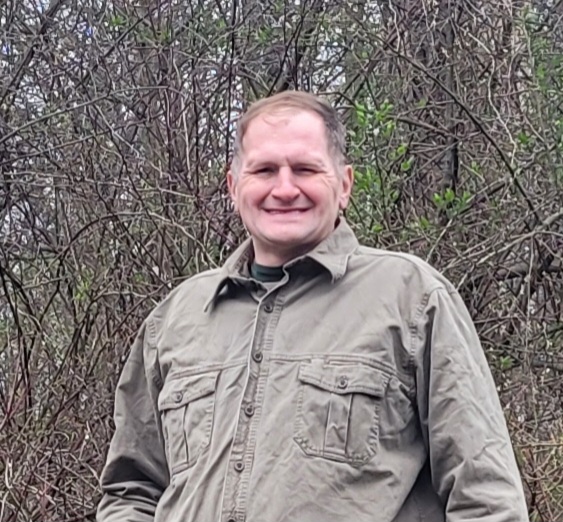
Tracking and Ohio Wild Game Behavior
Peter Hoffman
Finding an animal and learning it’s behavior starts with tracking it’s footprints. Why is the animal moving in this specific direction.? Where is it’s food, it’s water, or it’s sleeping area? Once the tracks have been identified then the tracks will tell us when it when it was there and what time it was there. Track identification will be gone over as we match tracks to the animal. Also in simulation will you learn how to track an animal after you take the shot, if you were hunting. Deer being the most common track and most sought after game animal will be the focus but we will also cover species of tracks that you will commonly encounter like wild turkey, raccoons, squirrels, and geese. Predator tracks are also found on game trails so learning to identify the difference between a coyote and a dog will be covered.
Part 1:
Identifying tracks of the species and learning to follow them. Learn game animal behavior, where the animal goes for food, why they go there, their patterns, as well has how to track an animal after the shot is taken, if you are hunting.
Part 2: We go out to the trails and find animal tracks and learn techniques on how to follow them based upon the clues left behind in the tracks.
Peter grew up in a gatherer family with teacher parents, tracking animals, bird watching, herbalism, woodworking, fishing, sewing, camping, and self sufficiency. He made a choice to become a hunter at age 35 because the people he traded with for venison moved away. After tracking animals for 44 years, Peter extended his skills by hunting. In 2014 after completing studies at The Pathfinder School, Peter felt the call to become an instructor. Along with all of his wild food skills, he trained in First Responder, Wilderness First Aid and Search And Rescue. He has taught Primitive Skills for 10 years and currently teaches at Bending Oak Permaculture Farm. As an animal and nature lover do he believes in the total use – from nose to tail – of the animal taken. This includes not only eating the animal but tanning its hide, using its bones, teeth, feathers, antlers to make outdoor gear items.
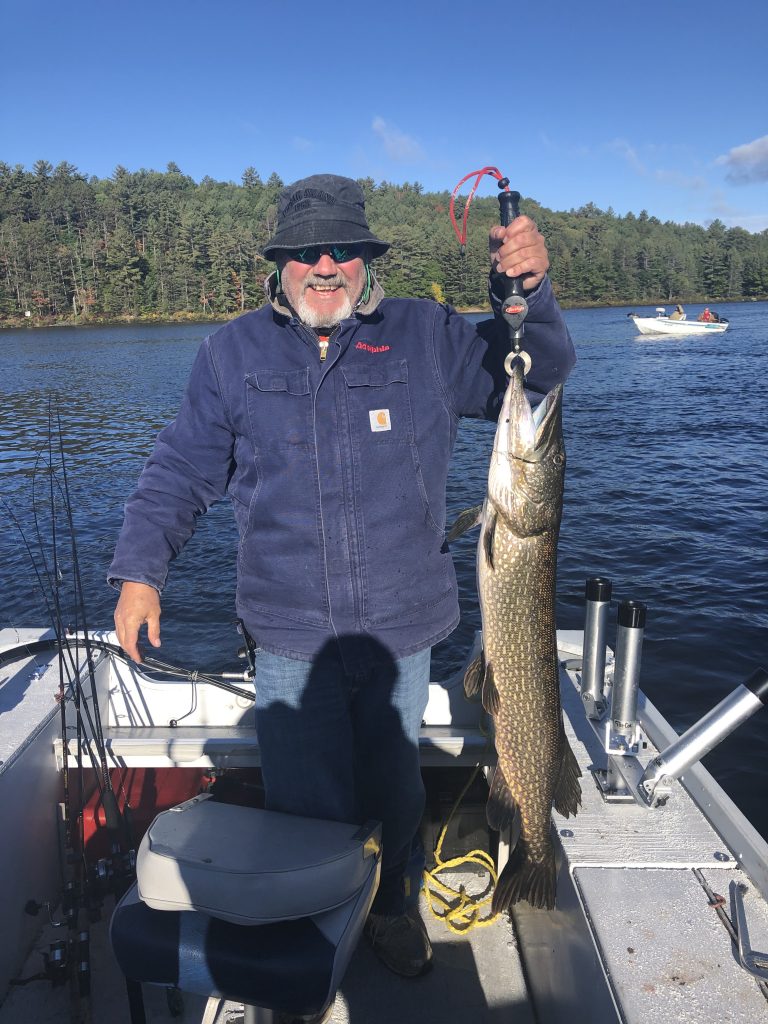
Fishing Made Easy
Presentation by Michael King
All of the rules, regulations, types of bait, and equipment can make fishing seem complicated. Michael will help make it easy. Learn about the basics of fishing such as types of fishing line, strengths, and terminal tackle essential to freshwater fishing, plus an overview of the rules and regulations in Ohio. Learn when and where to find different species of fish. Plus learn some easy but essential knots used in fishing. Plus learn some tactics that will make fishing an enjoyable experience.
Michael is a retired firefighter and avid angler in Ohio and Canada. He spends his time teaching his three daughters the craft and hopes to teach his granddaughter in due time.
Teaching firefighters about ropes and knots was an easy transition from his fishing experience. Fishing for over fifty years and studying knot strength and ease of tying them he has a great appreciation of his father who taught him those skills so long ago. He passed on these skills to others through the state sponsored “Hooked on Fishing” program.
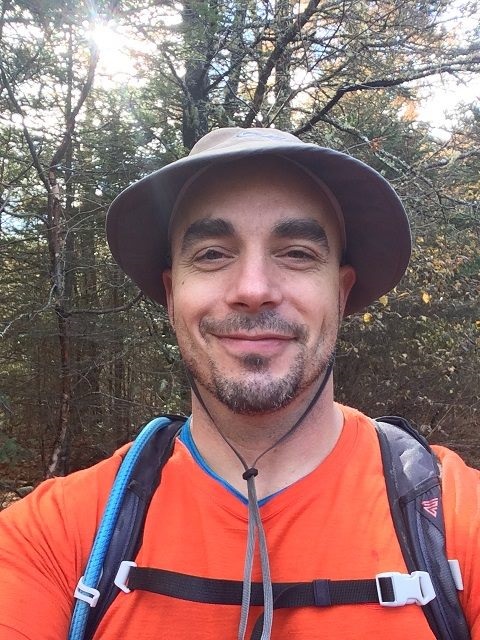
Introduction to Small Game Hunting
Presentation/Demo with Phil Melillo
An introduction to hunting, processing, preserving, and cooking small game. This presentation will teach the audience how to prepare for hunting small game in Ohio including how to get a hunting license, how to acquire an appropriate weapon, what clothing and gear is needed, and how to find a place to hunt. The second part of the presentation will focus on how to take this preparation to the field and hunt, field dress, process, preserve, and cook small game. Audience members will leave this presentation with the knowledge and resources necessary to procure wild, organic, free range, nutrient dense meat for themselves and their families no matter what knowledge and skill level they bring to the presentation. This presentation might include a field dressing and processing demonstration if the hunter is lucky.
Phil is from Northeast Ohio and has been hunting, fishing, gardening and foraging for food since he was 9 or 10 years old. He comes from a small Italian immigrant town called Niles, Ohio and was raised by families of Italian and Hungarian ancestry. Those cultures deeply value self reliance, and high quality and flavorful food that is not just fuel, but a social event to partake in with reverence and respect for the ingredients, where the ingredients came from, and the people with which one enjoys them. Phil hunted, fished, gardened, and foraged with his family out of financial necessity, but also out of passion for high-quality ingredients for the supper table. Phil currently work for the Ohio Department of Natural Resources managing Burr Oak, Strouds Run, and Forked Run State Parks and continues to promote these sustainable practices of hunting, fishing, gardening and foraging for food.
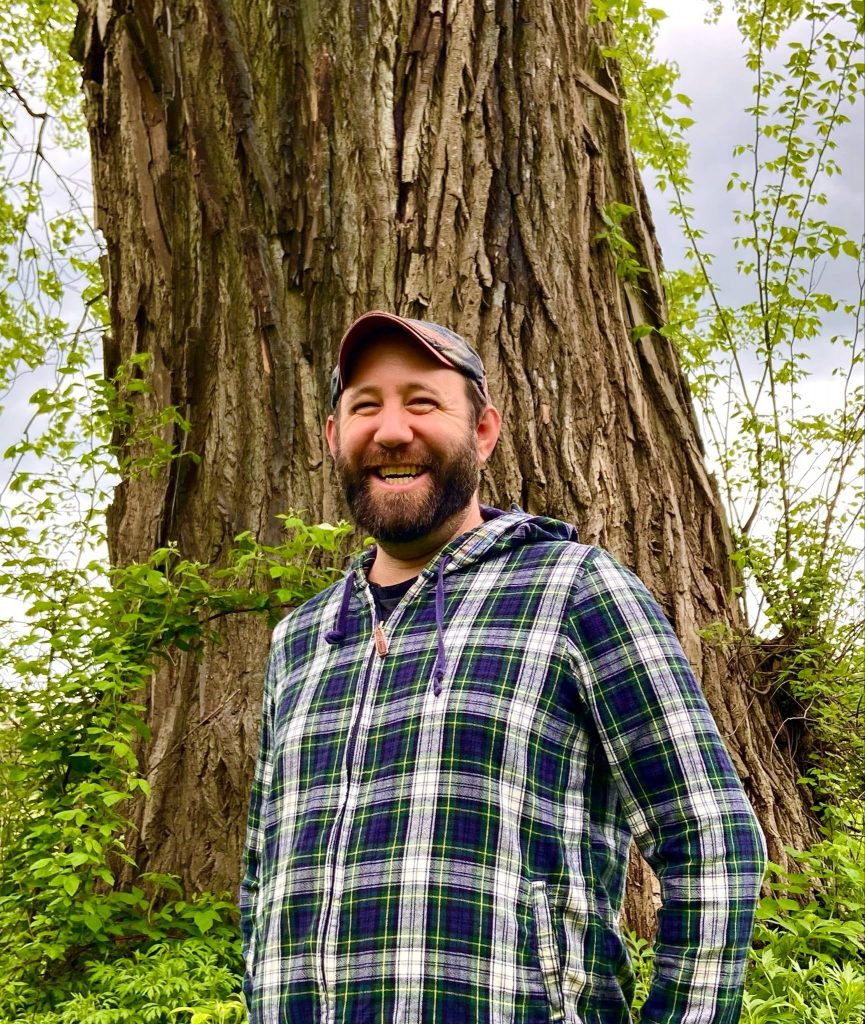
Cooking Demo: Mixed wild mushroom and herbs on crostini with Manchego cheese
Presentation/Demo with Adam Lee
Adam Lee serves as the program director for Youngstown CityScape, chair of the Downtown Youngstown Partnership, and on the boards of Loop Youngstown, and Friends of the Mahoning River. His additional accomplishments include a self-started farm-to-table pop-up event business, providing hands-on inner-city science education, non-profit work in support of local community food access, and professional experience in the world of fine dining and hospitality. Furthermore, he is involved in the Downtown Youngstown Partnership and the Ohio Mushroom Festival, he’s a member of the Rotary Club of Youngstown, and has done extensive international travel.

Reading the Landscape/Wild Plant Identification
Hike with John Wright of Red Beet Row
Join John Wright from Red Beet Row for a ramble through the weeds, where we will unlock the hidden stories of the land through its plants.
The past, present, and future of landscape degradation will be discussed with practical tools for sustainable land management and foraging as a central theme.
We will explore ways to be a human keystone species, including techniques to increase the foraging potential and wildlife around where you live. As we hike, John will also identify the various edible and medicinal plants that can be found in fields, wetlands, and woods.
We will explore ways to be a human keystone species, including techniques to increase the foraging potential and wildlife around where you live. As we hike, John will also identify the various edible and medicinal plants that can be found in fields, wetlands, and woods.
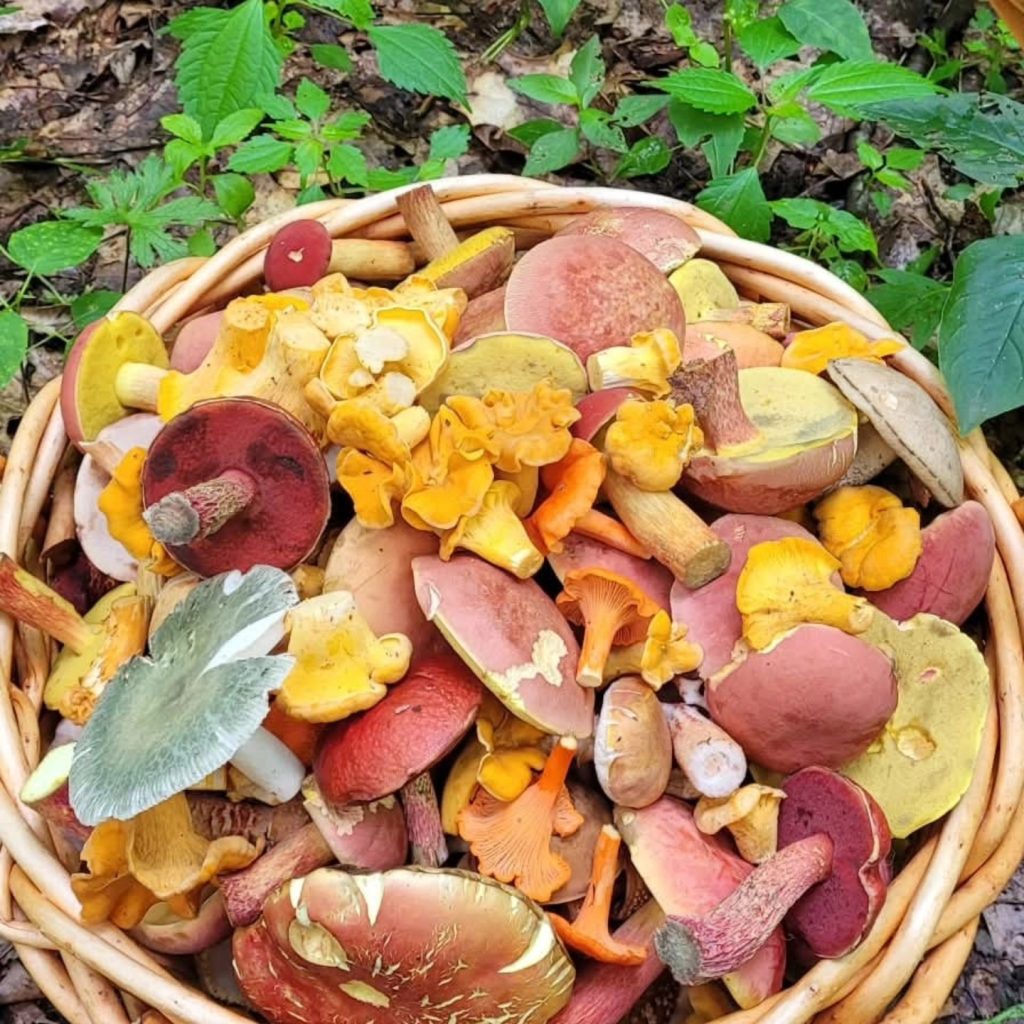
Mushroom Hunting 101: Tips and Tricks for a Successful Mushroom Hunt
Presentation by Don King, the Mushroom Hunter
This is your chance to learn all you need to know about how and where to hunt for wild edible and medicinal mushrooms in Ohio and beyond. Don will cover the tools and resources that will make your mushroom hunts both fun and successful, as well as which public spaces are open to mushroom foraging. The presentation concludes with a few of the most sought-after mushroom species that can be found in late summer and early fall.
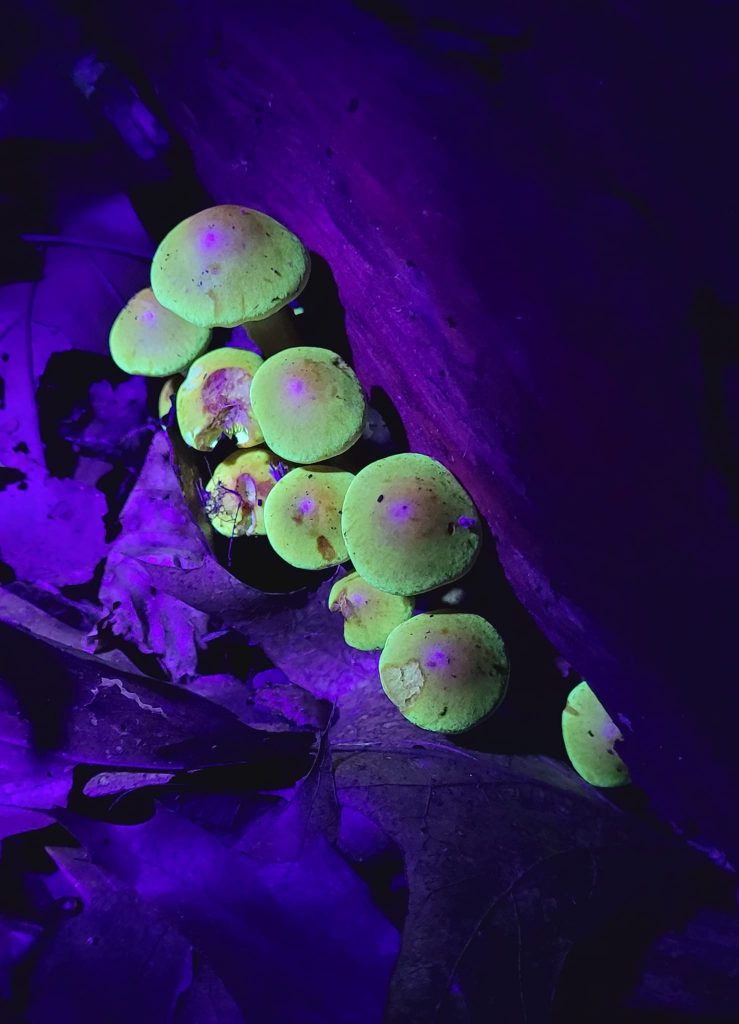
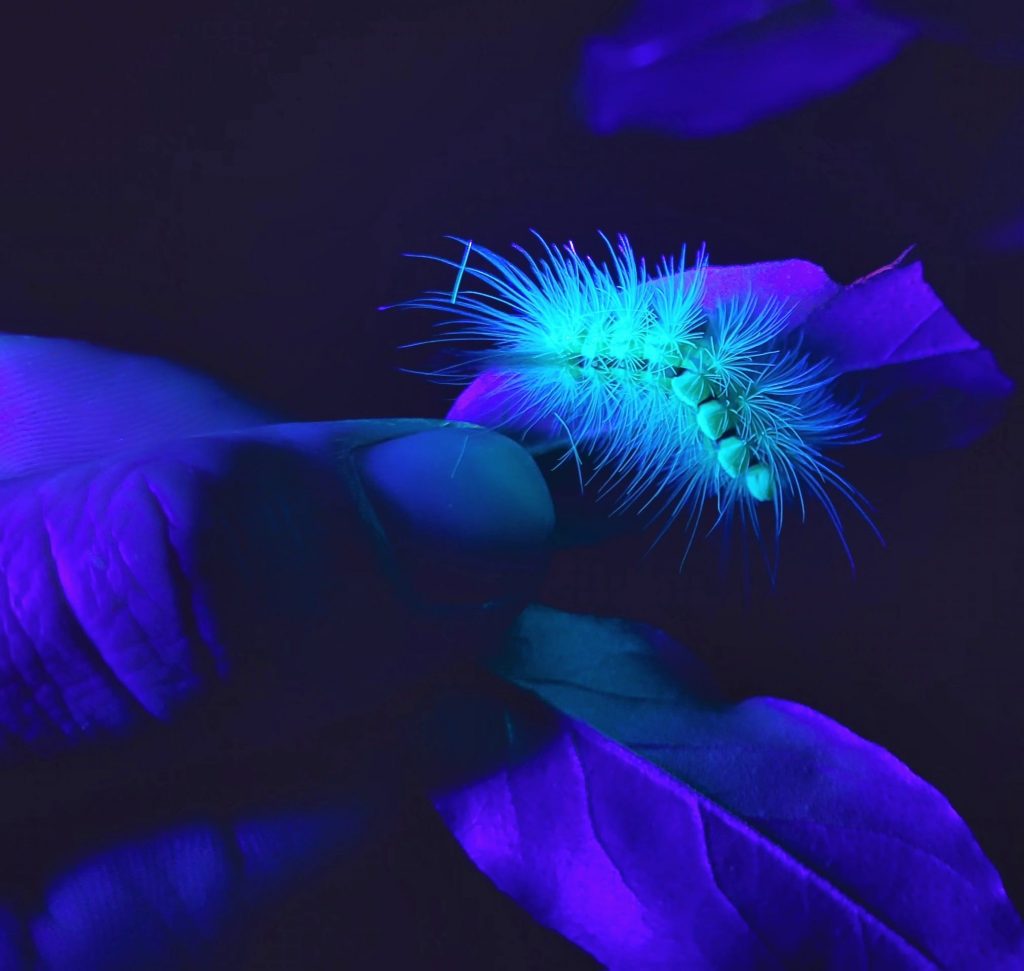
Nighttime Biofluorescence UV Hike
Join the Ohio Wild Food Fest organizing team on a hike through field and forest, as we search for plants, mushrooms, lichens, and insects that react to UV light! We have flashlights available, but feel free to bring your own.
